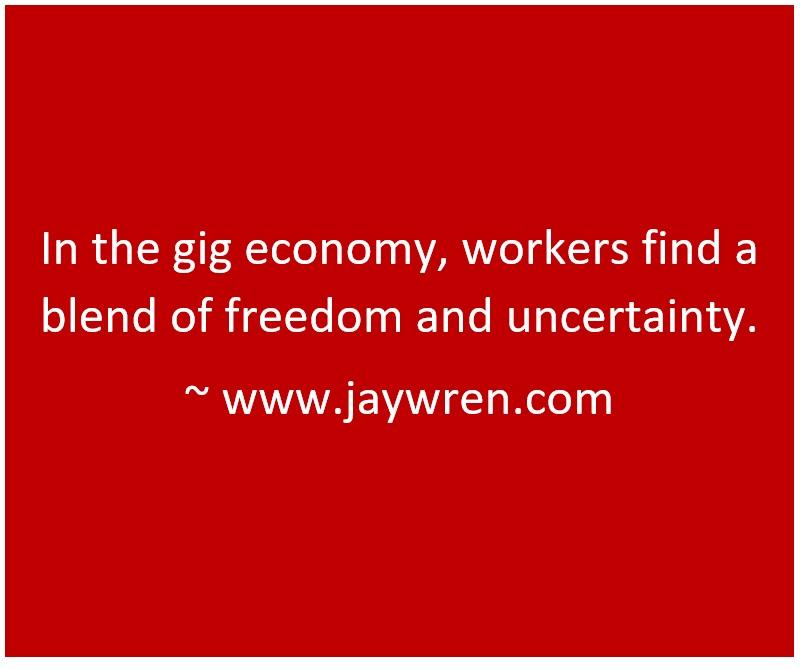The Sharing Economy: The purpose of this article is to help job seekers find income quickly and help employed people quickly find supplemental income. With the Internet expansion and coincidental high unemployment from the 2008 recession, companies began to spring up to connect personal asset sharing with consumers. The development of phone applications has increased the ease for making these connections.
For many people, this article will serve as a reminder of the opportunities for short-term, immediate ways of making money. For others, this article may help people understand how they can quickly make money by working with sharing companies.
Sharing Economy Keywords
Knowing the nomenclature of the sharing economy will help you locate opportunities on the Internet. Here are some of the categories of gigs and asset sharing.
- Vehicle or equipment renting
- Overnight accommodations
- Ridesharing alternatives to taxis and busses
- Delivery services from store to consumers
- Experts on demand
- Crowdfunding to raise money from a large number of people who contribute small amounts of money
- Ad-supported video sharing
The examples above will help you with keywords for searches to find ways of making money. Here are additional keywords to help you identify opportunities in the sharing economy.
- Sharing Economy, obviously
- Peer-to-Peer Redistribution Markets
- Social Commerce
- Crowdfunding
- Collaborative Consumption
The Benefits of the Gig Economy
For 33 years as a recruiter, I earned a living by filling one job and then another. I worked under contract with multiple companies. Essentially, my company worked gigs or projects. I did not receive a regular paycheck from an employer. The hiring companies contracted their search assignments out to me. I took advantage of social media and a monthly newsletter to promote my business.
I worked gig on contract.
However, I had the benefits of setting my own hours, living where I wanted to live, and increased my income based on my performance. The gig economy enables workers to have those freedoms.
On the other hand, my income was uncertain. Again, as I stated earlier, I did not have a regular salary from a large company.
Sharing Economy is Not Perfect
A few years ago, my firm tested working a shared economy recruiting site. Using a sharing service was different from the way my firm had always done business.
The sharing company had a website for finding and applying for contracts with their clients. Once my firm obtained a contract for a search, we uploaded applicants’ resumes to the website.
The reason that I began to work with this job search network was that one of my major clients had turned all of its search assignments over to this company and listed me as one of their preferred firms. To continue to work with this client company, I had to coordinate with the company’s chosen job-sharing search company.
My firm did have an offer extended through the sharing site. I received more searches, but the revenue per search was lower. I found that for my company I could make more money more quickly by sticking to my business model of working directly with hiring companies. Unlike working with my long-time clients where I typically had exclusivity, the job-sharing company assigned their searches to a number of recruiting firms.
Additionally, I began to become concerned that once my recruited candidates were in the system of the job-sharing company, I was not able to track how this company might be managing these job seekers for future searches.
Competition in the Sharing Community
How well job-sharing works for you depends in part on the number of competitors you have. The more people a gig company hires increases the power of the company to serve their customers. However, the more people a gig company hires reduces your opportunities for work.
In my experience, the gig job search company I joined listed dozens of jobs. However, I had to compete with countless other recruiters simply to get approval to work on a specific search. Then, for the searches I was able to contract, the gig company contracted other recruiters to work on the same search.
My experience is consistent with what other people find when seeking gigs through job-sharing websites. The hiring companies benefit from having a surplus of workers. On the other hand, the workers suffer from a system bloated with other workers.

